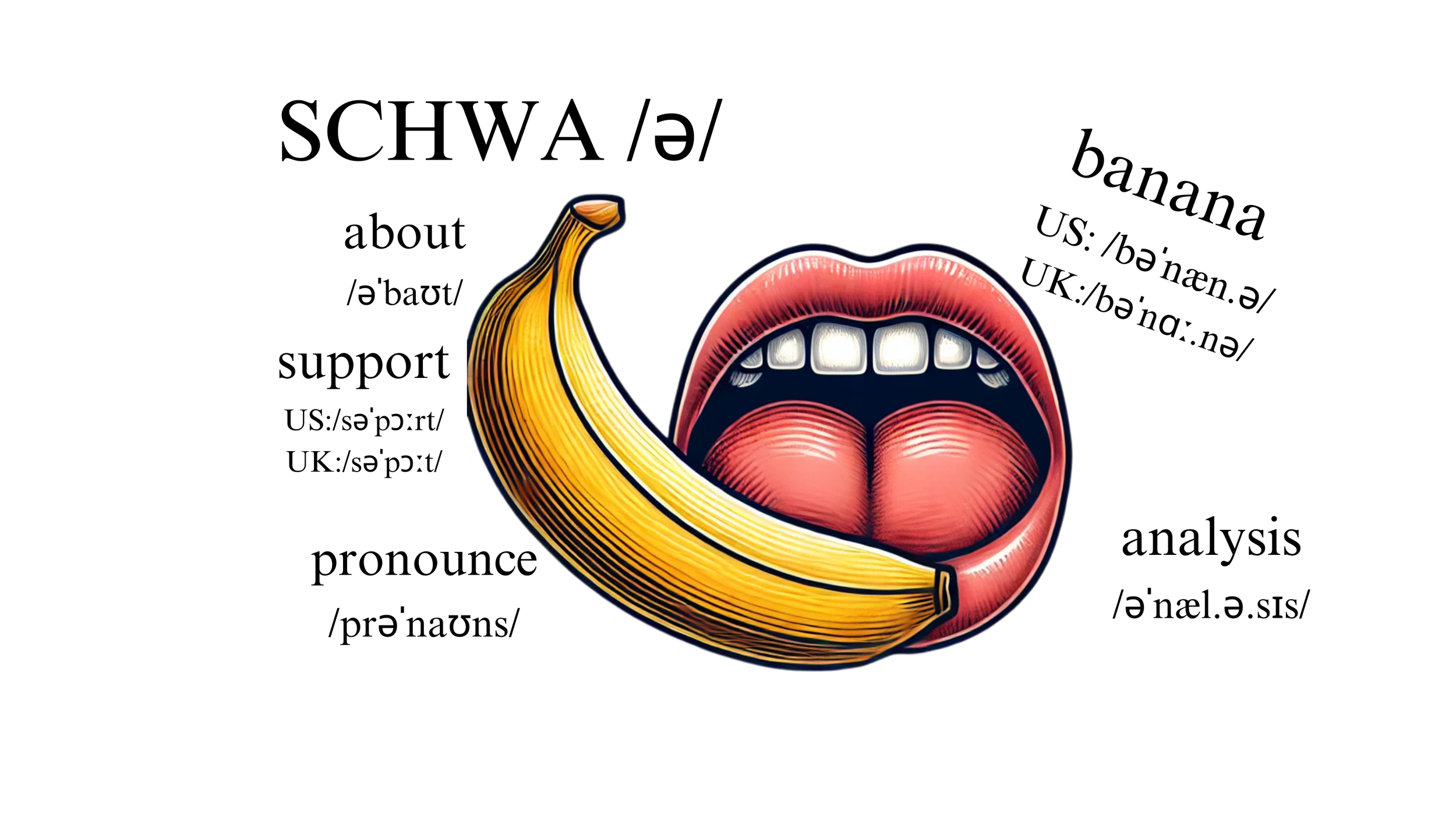
The Schwa Sound: Your New Secret to Sounding Like a Native English Speaker
If you’ve ever tried to improve your English pronunciation, you’ve probably come across a sound that’s everywhere, but almost no one talks about—the schwa sound. It might sound like something out of a sci-fi movie, but it’s actually the most common sound in English. Yep, it’s more common than any vowel or consonant you can think of! And the best part? Once you start using it, your English will instantly sound more natural and effortless, especially if you’re working on that American accent. Ready to unlock this secret? Let’s dive in!
What is the Schwa Sound?
Okay, here’s the deal: The schwa sound is a super relaxed, “uh” sound that pops up in unstressed syllables. You make this sound by barely moving your mouth. Seriously, it’s like the sound your mouth makes when it’s being lazy! In phonetic symbols, it’s written as /ə/, and it can happen with any vowel—yep, any vowel.
But don’t let its simplicity fool you. This little sound is the glue that holds English speech together, especially in American English, where people tend to reduce vowels all the time. In short, if you want to sound more like a native speaker, learning the schwa is a game changer.
Spot the Schwa: It’s Everywhere!
Here’s where things get fun. The schwa can show up in words you use every single day. And the tricky part? It doesn’t care how a word is spelled. The schwa sound is all about stress (or lack of it). Check out these words where the schwa hangs out:
- About – That first “a” is totally a schwa: /əˈbaʊt/
- Support – The “u” is a sneaky schwa: /səˈpɔːrt/
- Family – Yep, the “a” is a schwa here too: /ˈfæməli/
- Banana – Both the first and last “a” are schwas: /bəˈnænə/
In phonemic script, we signal the strong syllable (AKA the STRESSED syllable) with this little mark /ˈ/. The syllable that comes after this mark is the one that receives the emphasis. Notice that the syllable that before or after the stresses syllable just kind of fades into the background. That’s the schwa doing its job—making speech flow without putting extra effort on the unstressed parts. When you get the hang of it, your speech becomes smoother, more natural, and yes, way more American.
Why the Schwa is a Big Deal in American English
Here’s why the schwa is your new best friend for mastering American English. In the U.S., rhythm and stress rule the way people speak. Some syllables get the spotlight (they’re stressed), while others kind of hang back in the shadows (they’re unstressed). And guess which sound shows up in all those laid-back, unstressed syllables? You got it—the schwa!
Using the schwa sound helps you:
- Sound more natural: English has a rhythmic beat, and the schwa is like the background music that keeps it going.
- Avoid over-pronouncing words: A lot of English learners try to say every syllable clearly, but native speakers don’t! We let the schwa take over when we don’t need to stress a syllable. It’s a huge shortcut to sounding fluent.
- Get that American intonation just right: The schwa helps you relax the unimportant parts of the word so you can emphasize what matters. Basically, it helps your sentences flow like a real native speaker.
The Schwa’s Sneaky Challenges
Even though the schwa is super chill, it can cause some confusion for learners. Why? Because it doesn’t match up with the spelling of words. You can’t look at a word and know where the schwa sound is without hearing it. For example, in banana, some learners might try to pronounce each “a” fully, but in American English, the first and last “a” are both relaxed into schwas, so we say /bəˈnænə/, not /bæˈnænæ/.
Here’s a tip: if a syllable is unstressed, there’s a good chance it has a schwa in it. Paying attention to the stressed and unstressed syllables will help you spot schwas in action.
Tips for Mastering the Schwa
Alright, now you’re probably wondering: how can you get better at this mysterious sound? Don’t worry, I’ve got you covered:
- Listen to native speakers: Seriously, grab a YouTube video or a podcast with native speakers, and just listen. You’ll notice how they glide through words without fully pronouncing every vowel. That’s the schwa magic! Try repeating what they say, focusing on reducing those unstressed vowels.
- Check a pronunciation dictionary: You don’t need to guess where the schwa is! Online dictionaries like Cambridge or Merriam-Webster show phonetic transcriptions, and you can see where the schwa sound appears.
- Practice with common words: Start with easy, everyday words like camera, banana, or sofa. Focus on pronouncing the schwa in the unstressed syllables. Once you’re feeling confident, move on to bigger, more complex words and phrases.
Make Friends with the Schwa!
The schwa sound may be small, but it has a huge impact on your American English pronunciation. By embracing it, you’ll notice that your speech flows more naturally, and you’ll be able to pick up the rhythm and melody of American English like a pro. Plus, once you learn to spot and use the schwa, speaking English becomes way easier (and way more fun).
So next time you’re practicing your English, don’t sweat the hard stuff—just relax and let the schwa work its magic. Trust us, you’ll be sounding more like a native in no time!